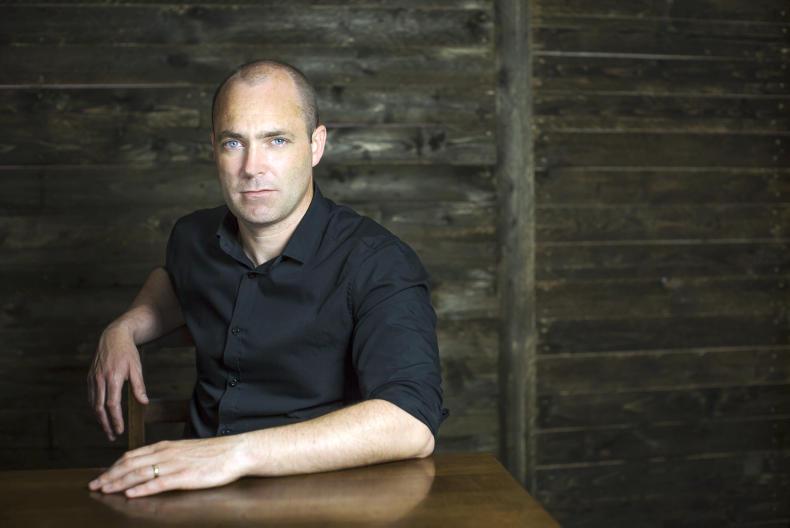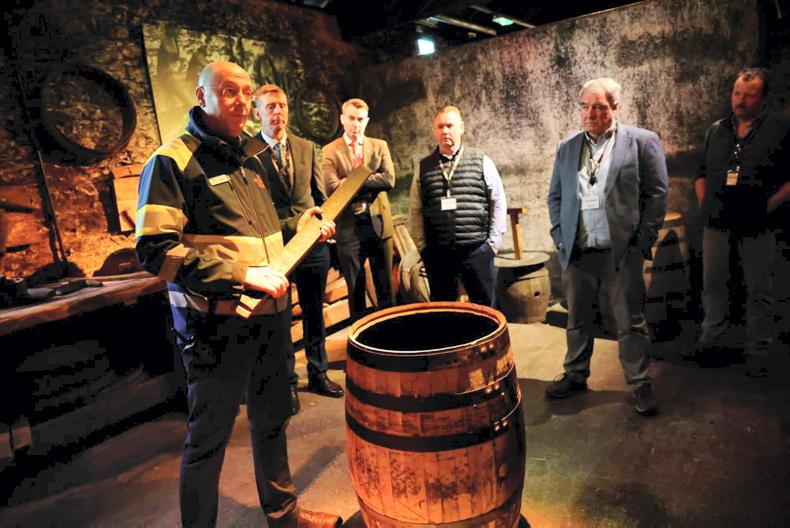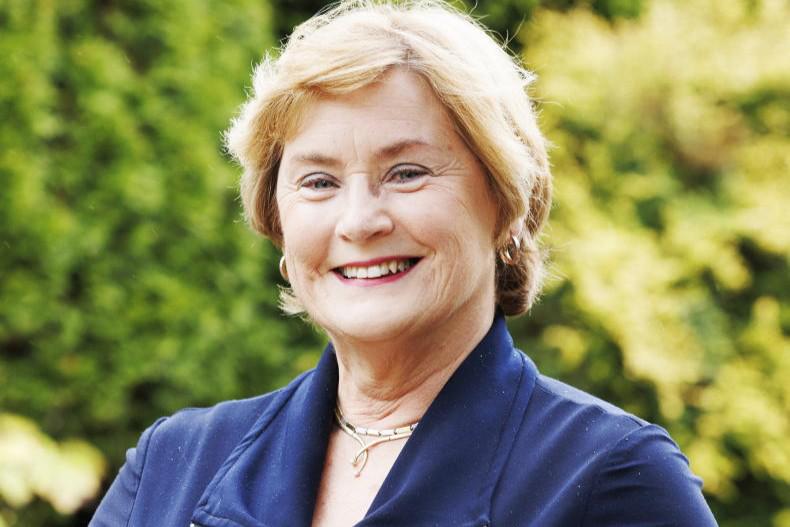If you search “Donal Ryan” on Google almost every search result mentions the accolades the author has earned: longlisted for the Booker Prize, the Guardian First Book Award, EU Prize for Literature, four number-one bestselling novels.
Undoubtedly, he’s one of the most celebrated modern Irish writers. But speaking with the man himself, you’d scarcely know it.
Even though I interviewed Donal a few years ago, I’m still taken aback by just how humble he is. His latest book, Strange Flowers, was released on 27 August and true to his nature, the author wishes he could just release the book without any fanfare.
“People feel so obliged to buy it, go to launches and tell you it’s great. I feel a bit guilty about the whole thing. I wish it could be just out and there would be nothing about it.”
Semi in jest, I ask are occasions around the book’s launch a source of discomfort.
“I wouldn’t be the most outgoing, gregarious person in the world. I’m not great at public speaking, but it’s always fine once you get to it,” Donal answers.
I counter that; I’ve heard him speak in public and he came across as really funny.
“It’s a bit of a mask for my terror,” he laughs.
Racism
Regardless of his uncertain feelings around book launches, Strange Flowers itself packs quite a punch. There are strong themes around race in the book and what it would be like to live in rural Ireland as a black person in the 1970s.
The first draft was written back in 2017, and while racism was obviously an issue then, it’s very apt following the recent Black Lives Matter movement.
“I wrote the first draft fairly quickly to be honest. My father had just died suddenly, so I was in a bit of a state of shock. It really helped me to deflect the initial shock of his departure in 2017,” Donal says.
“The place itself is based on my own home place, north Tipp, as all my stories are. The story itself and the people in it kept my father close and the grief of his departure at bay. It had a duel function in that respect. I think the story just kind of unfolded. I wrote it very quickly, the first draft. I’ve no real clear memory of writing it.”
The story centres on the Gladneys, a white farm-labouring family living in rural Tipperary and the Elmwoods, a black working-class family living in London. Their worlds collide when Moll Gladney runs away to London and subsequently has a baby with Alexander Elmwood.
“I felt that a family like the Elmwoods would feel an affinity and kinship with a family like the Gladneys. They’re kind of from a similar tradition, they’d be ostensibly very different and of course, Alexander would have stuck out like a sore thumb on a hillside in Tipperary in the 70s, but I still think a person like him would have been very quickly, very loved. I think how Alexander is treated is a fair representation in that place and that time.”
Writing in a north Tipperary vernacular allowed me to start seeing writing as true and real, and started to allow me to enjoy it
In one particular racially motivated incident in a pub after Alexander moves to rural Ireland, someone picks up a Trócaire box and insinuates they’re collecting for his people. It’s based on a real experience of a friend of Donal’s.
“You’re going to have eejits. There’s a scene where one of the men at the bar makes a really awkward, stupid joke about the Trócaire box. Trying to be a hard man and trying to be funny. Probably with no real malice intended, but just trying to put Alexander down a bit, because Alexander would have seemed to him like this towering figure as well,” Donal explains.
“He’s a hurler and he’s tall, broad and good looking. This guy would have felt threatened and resentful towards him. That’s the kind of incident that would have punctuated the life of someone like Alexander.”
When creating a character, Donal really tries to become that person as he writes, reading dialogue aloud and imagining the place he’s describing. He’s a staunch believer that fiction is all guess work, sometimes very well-informed and other times less so, and all you can do is try to imagine as best you can.
Being these characters affects Donal emotionally, although he feels bad saying that something he enjoys so much can have a negative impact on his life.
“When I think of how important some people’s work is, and how unimportant in a way writing fiction is, and still I do it, expect people to pay for it and expect people to tell me I’m great. It’s terrible,” he half laughs.
“I think of people like Captain Dara Fitzpatrick and her crew, literally taking to the sky to lay their lives down for somebody else, and I’m here worrying about bad reviews, the risk to me because I might be a bit upset at times.
“But it does happen (being emotionally connected to characters). It really happened me the first time I wrote a book, The Thing About December. I got really upset about a character, because I loved him so much.
“Johnsey was just so real for me. Then the book had to end the way it ended and I was really upset. I remember thinking, ‘Oh Jesus, I won’t do this again, I’ll finish up with the writing.’ It feels indulgent to say it can cause you any hurt or pain at all.”
Familiar vernacular
Donal is originally from outside Nenagh, but now lives in Limerick. Alongside being an author, he teaches creative writing at the University of Limerick (UL).
All of Donal’s novels to date are based in the north Tipperary area in which he grew up and the dialect of the people oozes through. Something that has become very much a trademark of his written work, however, wasn’t always there.
“For years and years I was trying to force stories out of myself. I don’t know why, it’s so ridiculous now, but I was always using this kind of heightened English middle-class voice, that was totally alien to me.
"I just had it in my head that was the voice you used for literature, because I really wanted to be a literary novelist. Literally notions,” he quips.
“It was just so discorded, it just struck so untrue. I kept at it and I kept burning things. I kept being disgusted by what I was writing and burning stories in the sink and washing them away. Literally the very simple expedient of writing in a north Tipperary vernacular allowed me to start seeing writing as true and real, and started to allow me to enjoy it.
“I couldn’t believe that suddenly it was easy, I could easily write a story now. I was never sitting there going, how should I phrase this? Because the way it was phrased was just hard-wired into me.”
Another consistent feature of Donal’s writing is an element of social justice. From the recession to bullying, asylum seekers, the Travelling community and racism, his novels often convey some form of societal injustice.
Like anybody else, I was in a small bit of financial trouble. I was lucky to get through it, a lot of people didn’t
The first book Donal released, but the second he wrote, The Spinning Heart, is set in the recession. Donal, at the time, was a labour inspector. Witnessing employees being left in the lurch by employers influenced the story. The strength of his feelings around situations people were in after the Celtic Tiger also permeates the novel.
“Like anybody else, I was in a small bit of financial trouble. I was lucky to get through it, a lot of people didn’t.
“So it was very real at the time. It was very immediate. Maybe that’s why The Spinning Heart has a chorus of very raw voices, telling a very immediate story about themselves, because I was kind of in that same place myself.
“Now that’s not necessarily the best place to write a book from. There’s definitely merit in having distance and objectivity about it. I wrote it in white heat, very quickly and got away with it, to be honest. It got me out of debt anyway, for a while,” he jokes.
On the surface, Donal may be self-effacing, but underneath he has plenty to say. Perhaps the fact he does most of his talking in his books, is why they’re so successful.
Read more
Down to earth Donal
No need to panic: Irish Country Living's top quarantine reads
If you search “Donal Ryan” on Google almost every search result mentions the accolades the author has earned: longlisted for the Booker Prize, the Guardian First Book Award, EU Prize for Literature, four number-one bestselling novels.
Undoubtedly, he’s one of the most celebrated modern Irish writers. But speaking with the man himself, you’d scarcely know it.
Even though I interviewed Donal a few years ago, I’m still taken aback by just how humble he is. His latest book, Strange Flowers, was released on 27 August and true to his nature, the author wishes he could just release the book without any fanfare.
“People feel so obliged to buy it, go to launches and tell you it’s great. I feel a bit guilty about the whole thing. I wish it could be just out and there would be nothing about it.”
Semi in jest, I ask are occasions around the book’s launch a source of discomfort.
“I wouldn’t be the most outgoing, gregarious person in the world. I’m not great at public speaking, but it’s always fine once you get to it,” Donal answers.
I counter that; I’ve heard him speak in public and he came across as really funny.
“It’s a bit of a mask for my terror,” he laughs.
Racism
Regardless of his uncertain feelings around book launches, Strange Flowers itself packs quite a punch. There are strong themes around race in the book and what it would be like to live in rural Ireland as a black person in the 1970s.
The first draft was written back in 2017, and while racism was obviously an issue then, it’s very apt following the recent Black Lives Matter movement.
“I wrote the first draft fairly quickly to be honest. My father had just died suddenly, so I was in a bit of a state of shock. It really helped me to deflect the initial shock of his departure in 2017,” Donal says.
“The place itself is based on my own home place, north Tipp, as all my stories are. The story itself and the people in it kept my father close and the grief of his departure at bay. It had a duel function in that respect. I think the story just kind of unfolded. I wrote it very quickly, the first draft. I’ve no real clear memory of writing it.”
The story centres on the Gladneys, a white farm-labouring family living in rural Tipperary and the Elmwoods, a black working-class family living in London. Their worlds collide when Moll Gladney runs away to London and subsequently has a baby with Alexander Elmwood.
“I felt that a family like the Elmwoods would feel an affinity and kinship with a family like the Gladneys. They’re kind of from a similar tradition, they’d be ostensibly very different and of course, Alexander would have stuck out like a sore thumb on a hillside in Tipperary in the 70s, but I still think a person like him would have been very quickly, very loved. I think how Alexander is treated is a fair representation in that place and that time.”
Writing in a north Tipperary vernacular allowed me to start seeing writing as true and real, and started to allow me to enjoy it
In one particular racially motivated incident in a pub after Alexander moves to rural Ireland, someone picks up a Trócaire box and insinuates they’re collecting for his people. It’s based on a real experience of a friend of Donal’s.
“You’re going to have eejits. There’s a scene where one of the men at the bar makes a really awkward, stupid joke about the Trócaire box. Trying to be a hard man and trying to be funny. Probably with no real malice intended, but just trying to put Alexander down a bit, because Alexander would have seemed to him like this towering figure as well,” Donal explains.
“He’s a hurler and he’s tall, broad and good looking. This guy would have felt threatened and resentful towards him. That’s the kind of incident that would have punctuated the life of someone like Alexander.”
When creating a character, Donal really tries to become that person as he writes, reading dialogue aloud and imagining the place he’s describing. He’s a staunch believer that fiction is all guess work, sometimes very well-informed and other times less so, and all you can do is try to imagine as best you can.
Being these characters affects Donal emotionally, although he feels bad saying that something he enjoys so much can have a negative impact on his life.
“When I think of how important some people’s work is, and how unimportant in a way writing fiction is, and still I do it, expect people to pay for it and expect people to tell me I’m great. It’s terrible,” he half laughs.
“I think of people like Captain Dara Fitzpatrick and her crew, literally taking to the sky to lay their lives down for somebody else, and I’m here worrying about bad reviews, the risk to me because I might be a bit upset at times.
“But it does happen (being emotionally connected to characters). It really happened me the first time I wrote a book, The Thing About December. I got really upset about a character, because I loved him so much.
“Johnsey was just so real for me. Then the book had to end the way it ended and I was really upset. I remember thinking, ‘Oh Jesus, I won’t do this again, I’ll finish up with the writing.’ It feels indulgent to say it can cause you any hurt or pain at all.”
Familiar vernacular
Donal is originally from outside Nenagh, but now lives in Limerick. Alongside being an author, he teaches creative writing at the University of Limerick (UL).
All of Donal’s novels to date are based in the north Tipperary area in which he grew up and the dialect of the people oozes through. Something that has become very much a trademark of his written work, however, wasn’t always there.
“For years and years I was trying to force stories out of myself. I don’t know why, it’s so ridiculous now, but I was always using this kind of heightened English middle-class voice, that was totally alien to me.
"I just had it in my head that was the voice you used for literature, because I really wanted to be a literary novelist. Literally notions,” he quips.
“It was just so discorded, it just struck so untrue. I kept at it and I kept burning things. I kept being disgusted by what I was writing and burning stories in the sink and washing them away. Literally the very simple expedient of writing in a north Tipperary vernacular allowed me to start seeing writing as true and real, and started to allow me to enjoy it.
“I couldn’t believe that suddenly it was easy, I could easily write a story now. I was never sitting there going, how should I phrase this? Because the way it was phrased was just hard-wired into me.”
Another consistent feature of Donal’s writing is an element of social justice. From the recession to bullying, asylum seekers, the Travelling community and racism, his novels often convey some form of societal injustice.
Like anybody else, I was in a small bit of financial trouble. I was lucky to get through it, a lot of people didn’t
The first book Donal released, but the second he wrote, The Spinning Heart, is set in the recession. Donal, at the time, was a labour inspector. Witnessing employees being left in the lurch by employers influenced the story. The strength of his feelings around situations people were in after the Celtic Tiger also permeates the novel.
“Like anybody else, I was in a small bit of financial trouble. I was lucky to get through it, a lot of people didn’t.
“So it was very real at the time. It was very immediate. Maybe that’s why The Spinning Heart has a chorus of very raw voices, telling a very immediate story about themselves, because I was kind of in that same place myself.
“Now that’s not necessarily the best place to write a book from. There’s definitely merit in having distance and objectivity about it. I wrote it in white heat, very quickly and got away with it, to be honest. It got me out of debt anyway, for a while,” he jokes.
On the surface, Donal may be self-effacing, but underneath he has plenty to say. Perhaps the fact he does most of his talking in his books, is why they’re so successful.
Read more
Down to earth Donal
No need to panic: Irish Country Living's top quarantine reads










SHARING OPTIONS